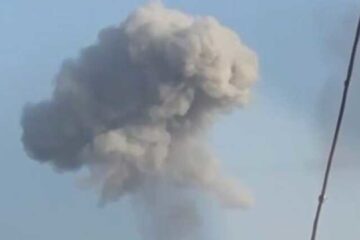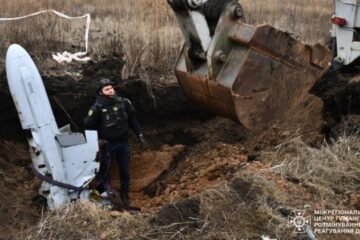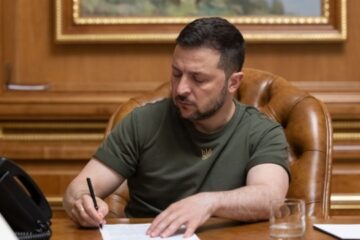
The Center for Strategic Communication and Information Security pursues efforts to provide a brief explanation to foreign audiences on the current topics of particular interest as regards Ukraine.
MISSILE TERROR ON CHRISTMAS NIGHT
On the night of 25 December, Russia fired 184 missiles and drones into Ukraine, attacking energy facilities in seven regions of Ukraine.
● The massive strike on Ukraine proved that the manipulations surrounding the so-called “Christmas truce” allegedly proposed by Russia were entirely unfounded.
● The enemy’s goal is to provoke a humanitarian catastrophe for Ukraine’s civilian population during the winter period.
● The Kremlin seeks neither a genuine truce nor a transition to honest diplomacy—an aggressor can only be compelled to peace through force.
● Ukraine seeks a stable peace, not a few-day ceasefire or temporary “freeze of the conflict”
● The key to peace is Ukraine’s military strength and reliable security guarantees, the best of which is full NATO membership.
UKRAINE–JAPAN RELATIONS
The Japanese government has decided to transfer another $3bn to Ukraine, secured by frozen Russian assets.
● The day before, on 24 December, Ukraine received a $1 billion tranche from Japan and the United Kingdom under the World Bank’s DPL programme.
● The total humanitarian and financial assistance provided Ukraine by Japan amounts to $12 billion.
● Since the beginning of the full-scale war, Japan has imposed 26 sanction packages against individuals and entities from Russia and Belarus.
● Economic ties between Ukraine and Japan are strengthening: in 2023, bilateral trade between the two countries grew by almost 30%, and this year by another 6%.
● In December, Japan announced the creation of a coordination council to reconstruct Ukraine, which will unite Ukrainian and Japanese businesses.
INFORMATION SELF-ISOLATION OF RUSSIA
The Putin regime is deliberately isolating the Russian population from alternative sources of information.
● Since July 2024, the Russian authorities have artificially slow down YouTube traffic to complicate user access to the platform
● Recently, YouTube traffic in Russia has decreased to 20% of its usual level, which means the platform has been blocked.
● YouTube remained the last major online platform still accessible in Russia after the blocking of Facebook, Instagram, and X (formerly Twitter).
● Earlier, Russia blocked the messenger Viber and the platform Discord, and now the Kremlin is preparing to block WhatsApp and Skype.
● All of this is a deliberate policy of the Kremlin aimed at total informational isolation of the population and immersing it in a fabricated world of propaganda



